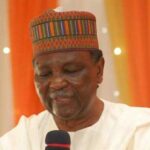Ory Martins is the President and Chief Executive Officer (CEO) of Boeing Luxury Estates. He speaks about difficulties in the real estate sector, especially land acquisition in Nigeria, among others.
How did you start Boing Luxury Estate?
Boeing Estate is a company that has come to change the face of real estate in Nigeria. It started about seven years ago as Timi Properties and metamorphosed into Boeing Luxury Estate. It started with an estate close to the airport and so we renamed it Boeing because of its closeness to the airport. The name Boeing seemed to be selling more than the company name; Timi Property, so we had to register with the Corporate Affairs Commission (CAC). Now, Timi is like a parent company, while Boeing is a marketing company; the image behind the property business in Nigeria.
What inspired you to establish Boeing Luxury Estate?
Nigeria has one of the highest housing gaps in the world. We want to play our role by being social entrepreneurs. That simply means we want to solve a problem by making something good for ourselves; meeting human needs.
What are some of your projects?
In the last seven years we have provided housing and investment solutions to over 1,500 families and individuals, and they are excited about it.
Three of our estates have been sold out and we have about three selling now in Port Harcourt, Lagos and Abuja, and it has been a very interesting journey.
The interesting thing about us is that we have clients coming around, and that is because of the job we do well. We have about 10 clients who have given us open cheques; that whenever we want to open a new estate, they are automatic subscribers.
What are your challenges as a developer?
In Nigeria, there are enormous. A business mogul was once interviewed and he said, “On judgement day if an entrepreneur comes from Nigeria and appears before God, he would be given automatic ticket to heaven because he has already faced a whole lot of challenges.”
That is somebody in the manufacturing and merchandising sector now. Let us talk about the developer, face to face with the land owners, face to face with those that are not educated, face to face with militants, face to face with community youths, compensations and different sectors of land administrators. It is a very difficult and very challenging thing I must say.
Importantly, what I consider number one is to carve a niche in real estate development and funding. Secondly, land administration, and of course infrastructure.
What is your advice on land acquisition in Nigeria?
The Land Use Act confers the right to administer land on the governor of each state and in the FCT. Here in Abuja, the minister is the land administrator, but you see, the way they are administering the land, they are not doing well. Example, a developer needs to go to the open market or black market to procure land at a very expensive rate and government is talking about affordable homes. It would be difficult for a developer to buy land in the open market or black market, provide its infrastructure, import building materials and make that house affordable. Land administrators in every state need to make deliberate policies in addition to the Land Use Act to make land available; maybe as partnership, or even free or at highly discounted rates to serious minded developers. This will reduce the housing deficit.
Why do most developers not go into mass housing?
There are factors that prevent a developer from going into low cost housing. Three things I think; government has not done enough to encourage that. I just mentioned land allocation and administration. If government marks a particular section of a state where a low cost housing will be developed and the developers are given the land free or at a discounted rate; the developer will be guided on what to build and how the place will be sold.
Secondly, when it is business, we need to build for people that can afford. Government needs to have a social policy that can accommodate low cost housing estates. In the western world, in Asian countries, governments make deliberate policies to favour the poor. Here in Nigeria, policies are made to favour the elite.
What is your assessment of mortgage schemes in Nigeria?
It is working very poorly. I just came back from Japan and was shocked to learn that the moderate interest rate is three per cent. Some countries encourage and pay you money when you take loan. Nigeria is one digit, but how many Nigerians can access it? Probably only one per cent; which is very poor. That is why government needs to make concerted efforts to make this possible.
 Join Daily Trust WhatsApp Community For Quick Access To News and Happenings Around You.
Join Daily Trust WhatsApp Community For Quick Access To News and Happenings Around You.


